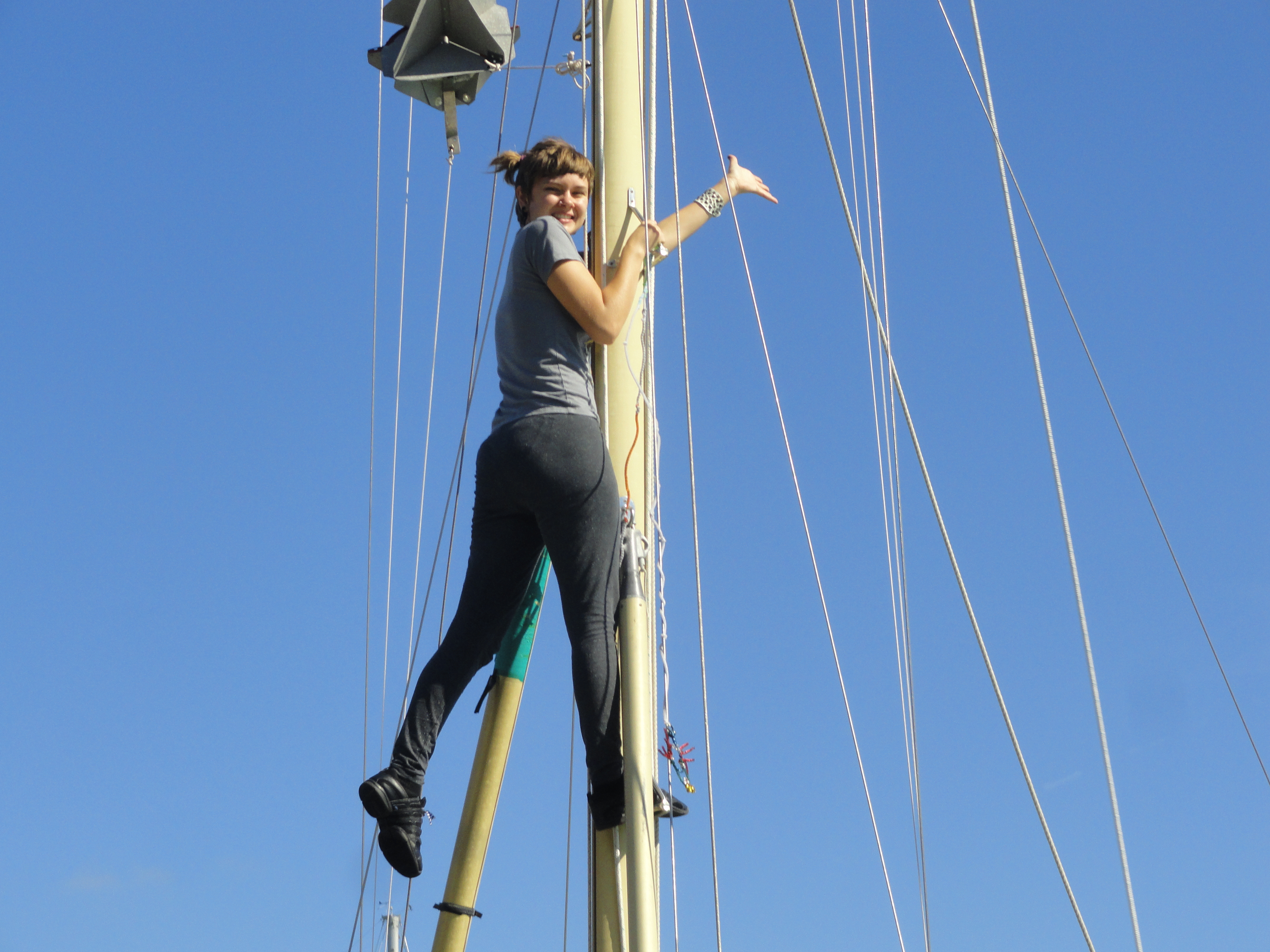

This can help with deschooling, and with appreciating children's talents and ideas.
The most wonderful person on earth should have humility (and must have, of course, or wouldn't qualify to be the most wonderful person on earth).
Knowing what's good about other people doesn't need to diminish your own self confidence. It will increase it, I think, to realize that you are surrounded by others who have skills and talents you might have need of.
When I was 25 or 26 I was teaching 9th grade for the first time after having taught 7th grade for four years. Some of the kids I knew already. At fourteen and fifteen years old, many of them were coming into the hostile territory of adolescence. Some were nearly grown. They were tired of school, some were tired of me, most were tired of English classes. Some really liked me from the first time they'd been in my class and I knew there would be repeat information and repeat jokes and stories. I had to do something to create a trusting, safe atmosphere for all of us. What I decided to do had a larger and broader effect than I ever thought it would have had.
What I did was to say that I was only the teacher because it was an English class, that I really loved words and writing, and had chosen to study that further and so become "an expert," and since they were required by law to take an English class I thought they might as well be in one with me as anyone else because I was fun. BUT, I said, if the class were about anything else I would NOT be the teacher, but one of them might be. I asked them to think of what they could do that they did well enough to teach, something that I might not know how to do at all.
The intent was to make them feel grown, to make me seem more human, less "TEACHER" to them. To define the class as a small part of a big life, not as "the most important thing in your life" as some teachers like to do. I wanted to boost their self esteem.
I didn't put everyone on the spot. Some volunteered. Some were humble but their friends called out things that they knew about them. One trained horses. One could repair cars and was restoring an old Chevy, I think it was, from the 40's, with his dad. I asked which of them were good swimmers. Several were. I told them I couldn't swim and if swimming were required I'd be totally useless and they'd be heroes. One girl said she could make tortillas--great tortillas. I told her that if it were a tortilla-making class she'd be the teacher and I'd be a beginner, and if we were stranded she might save all our lives by feeding us.
I told each how ignorant I was as it was appropriate. How afraid I was on a running horse, how I had someone doublecheck my saddle. They laughed. I told them I'd tried twice to learn to swim, and failed. They laughed, but not meanly. What was happening, which I hadn't expected to have happen, was that we were having compassion for one another. It made a lot of difference.
The next year I did it again. Got swimmers, cooks. Some spoke Spanish, or Tewa. I didn't. One sang rancheras, a traditional old-timey kind of music that was common in Northern New Mexico, with guitar, fiddle and accordian. One was a weaver in Chimayo.
By the second year I knew what to expect. I didn't treat them like kids, as I might have without that introductory session. I treated them like my potential teachers. I had hoped to empower them but didn't realize it would humble me. That was the best part.
The relationship between me and the students was different. They had a reason to respect me other than "I said so," and they knew that there could be other circumstances under which they would be the teachers and I would be the respectful student. I appreciated their respect, and didn't take it for granted.
If there's someone you think is a weenie, an irritant, it will help if you discover, even just for yourself in private, what it is that the other person knows that you don't know. What can they do that you can't do? What have they accomplished, or made, or discovered, or seen, or endured that you have not? Find something in them that you can respect. In the moment that you know one way in which they are superior to you, in however small an aspect, that is humility.
If there's someone of whom for some reason you have negative opinions and small regard, take a moment to think what they can do that you can't do. There is your honest humility.
It will change you.
The wonderfulness of others will not diminish you. Your realization of the wonderfulness of others will enlarge you.
Photo-links to posts at Just Add Light and Stir:


"Previously, I had defined humility as a lack of feeling superior to others. Expanding the definition to include a willingness to learn from others has been useful."
Once upon a time a confident and experienced scholar went to the best Zen teacher he knew, to apply to be his student. The master offered tea, and he held out his cup. While the student recited his knowledge and cataloged his accomplishments to date, the master poured slowly. The bragging continued, and the pouring continued, until the student was getting a lapful of tea, and said, “My cup is full!” The master smiled and said, “Yes, it is. And until you empty yourself of what you think you know, you won’t be able to learn.”Weird Al says it a different way in “Everything You Know is Wrong,” and Christians say “You must surrender yourself.” Before that Jesus said, “Unless you become as a little child…”
What it means in homeschooling terms is that as long as you think you can control and add to what you already know, it will be hard to come to unschooling. The more quickly you empty your cup and open yourself to new ideas uncritically, the sooner you will see natural learning blossom.
When people are studying virtues in history, humility is a big one. It's unfortunate that it's out of style in modern life, but there are modern resources, too.
How Much Space do you Take?The Foundation for a Better Life, Humility stories and examples, on that page. You can subscribe to a daily inspirational e-mail, but not all just that one virtue.
A few years ago, I liked this page and linked it. It was revamped, and I don't love the new one as much. I don't like their large-print definition: "Humility is being modest, meek and teachable." Meek isn't necessary, and "teachable" is outside my years of experience with unschooling. The willingness and ability to learn is enhanced by modesty, but "teachability" isn't necessarily a virtue.There are better definitions, but it's hard to decide what's better without consider some worse examples. I think it's a good example of how combing through words and meanings helps clarify thoughts.
2015 update: The page is slipping away from its original glory. The definition has been added to yet again, and it is made even worse: "Humility is being modest, meek, teachable and humble." Using a form of the word in a definition cancels out the definition.
But the best story I have about my dad – unfortunately my dad passed away a little over a year ago – and when we were going through his things, he had fought in World War II in the Battle of the Bulge, and when we were going through his things, we found out he had been awarded the Bronze Star for Valor. My mom didn’t know it. In 50 years of marriage it had just never come up.. . . .
And he [his professor] put his arm around my shoulders and we went for a little walk and he said, Randy, it’s such a shame that people perceive you as so arrogant. Because it’s going to limit what you’re going to be able to accomplish in life. What a hell of a way to word “you’re being a jerk.” [laughter] Right? He doesn’t say you’re a jerk. He says people are perceiving you this way and he says the downside is it’s going to limit what you’re going to be able to accomplish.






Here are my SCA links regarding humility: Humility SCA.
Those articles are signed "Ælflæd," which is my name within that organization. It's on my gmail address, as aelflaed, too.